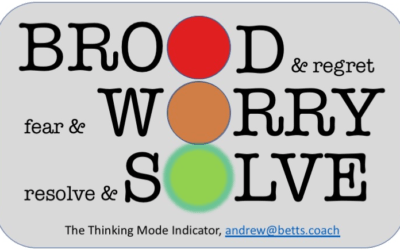In a couple of recent posts, I suggested a magic spell to help you avoid taking on other people’s problems: “And what would you like to have happen?”.
Assume that you’ve mastered this formula and have used it on a colleague who is now standing (spellbound) in front of you; how do you move them from their frozen state into one of action? In other words, now that they realise that you’re not going to solve their problem for them, how do you help them decide what to do next?
It’s simple: you administer some AWNTH potion.
For example, suppose that your colleague, in reply to the question, “And what would you like to have happen?”, says, “A deadline extension!”, then you reply with, “And What Needs To Happen for a deadline extension?”
“Michael Insman has to give authorisation”.
“And is there anything else that needs to happen for a deadline extension?”
“The engineers have to agree”.
“And is there anything else that needs to happen for a deadline extension?”
“Well, …”
The formula repeats. Each time the person replies you ask, “And is there anything else that needs to happen for <their desired outcome>?”
By using this formula, integrating the other person’s words into your question, without any modification, you ensure that you do not bring your own ideas or biases into play. The responsibility for finding a solution therefore stays with the other person.
It’s a bit repetitive and may seem unnatural, but you can modify pace and intonation to make it less so. It can also help to echo the last answer occasionally. For example: “And Michael Insman has to give authorisation. And is there anything else that needs to happen for a deadline extension?”
After three or four “And is there anything else …” loops, you sense that enough is enough, and you wind up with:
“And <list of all the replies>, and what needs to happen first?”
This is the clincher – a brilliant question for getting people unstuck!
Very often we get stuck because we see too many possible actions, not too few. The “… and what needs to happen first?” question incites someone to choose where to start – nothing more. No priorities, no detailed plan, no Excel. Just the first move.
These magic spells and potions give a quick idea of the elegance and power of the Five-Minute Coach method. This tool is striking in its simplicity, though there is more to it than I’ve shown here, of course. I hope that this short expose has whet your appetite!
The Five-Minute Coach is one of the tools that I use regularly in consulting and training work with customer-facing teams. You can find out more about it here:
· Leadership and Resisting Other People’s Problems



